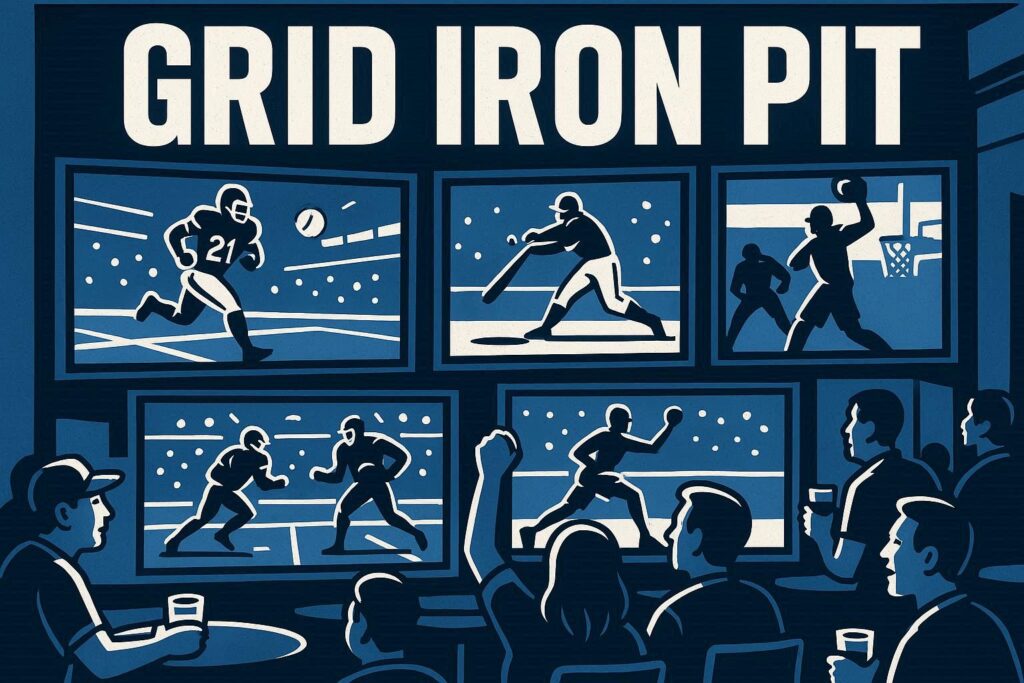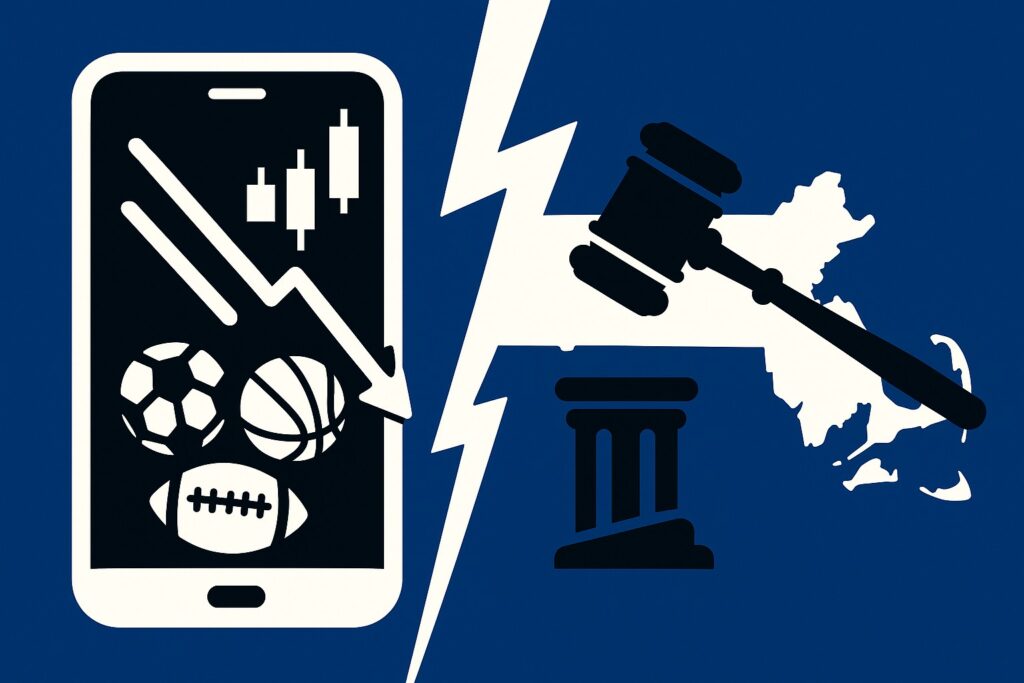The Ohio Senate Select Committee on Gaming hosted a public hearing Thursday morning regarding the potential legalization of online casinos in the state. Several individuals testified in favor of Senate Bill 197, which would establish iGaming and tax it.
Three of Ohio’s neighboring states (Michigan, Pennsylvania, and West Virginia) have legal and mature iGaming markets. The question now is will Ohio join them, and if so, how will it tax and regulate online casinos?
If SB 197 passes, it would task the Ohio Casino Control Commission with devising rules and regulating an iGaming market. That could include a high 36% tax rate and partnerships with brick-and-mortar casinos.
SB 197 is the second iGaming bill recently introduced in Ohio. The other, House Bill 298, would tax operators at 28% and also ban online sweepstakes casinos.
Caesars rep says iGaming helps retail business
Thursday’s hearing was chaired by Sen. Nathan Manning, a Republican who helped shepherd legal online sports betting into his state. One of the speakers at the hearing was Trevor Hayes, Vice President of Government Relations for Caesars Entertainment.
Hayes made sure to preemptively oppose those who claim that online gaming would negatively impact brick-and-mortar casinos.
“We wouldn’t be advocating for iGaming if we didn’t believe this was going to help the brick and mortar,” Hayes said. “We’ve made this incredible investment in [brick-and-mortar casinos in Ohio]. Just here locally we’ve added the grandstands [and] we’ve improved the racetrack.”
Hayes said that, in New Jersey, online casinos have not hampered retail casinos.
“Players in our Caesars database [have] 55% more brick-and-mortar visits,” Hayes claimed, and he said average annual visits to a brick-and-mortar casino for online players went from 11.5 to 18 visits per year.
“They don’t stop coming. They come more,” Hayes told the committee.
Hayes cited overseas companies that are not regulated as dangers to citizens of Ohio. He pointed out that those companies are not paying taxes to the state.
“It’s here now,” Hayes said, referring to illegal offshore online casinos. “This [legislation] is a chance to bring this out of the shadows [and] to have it regulated and protected. To make sure that minors are not betting.”
‘A lot more tax revenue for your state’
Seven states have legal active online casino or iGaming markets. There are 38 states with legal online sports betting. Proponents of legal iGaming point to tax revenue opportunities as a large reason for legalization. Hayes predicted huge tax income for Ohio.
In seven states for iGaming in 2024, $8.4 billion was wagered, according to Caesars. By comparison, sports betting produced roughly $14 billion in total handle across 35-plus states.
“[Legal online casinos play] has a chance to produce a lot more tax revenue for your state,” Hayes said.
Sen. William P. DeMora, the ranking member of the committee, expressed concerns that legalization of iGaming could endanger purses and profits at racetracks.
“We are the leading harness racing state [in the U.S.],” DeMora said, also pointing out that the bill made no provisions to require tax revenues to be funneled from iGaming toward racetracks and their purses.
Hayes insisted that, according to Caesars experience, attendance and wagering at tracks and retail casinos will go up if iGaming is legal in Ohio.
Potential hurdles
Hayes argued on behalf of Caesars against a requirement that promotions only be tied to casinos within Ohio. He cited that customers often want a chance to win trips to Caesars properties across the country, such as New Orleans and Las Vegas.
A final successful bill that would legalize online casinos faces many hurdles. Numerous issues must be resolved. Suggested licensing fees in Ohio are higher than the average national rate in both a House and Senate bill. That fee is a point of contention for operators.
“We’re competing with [sweepstakes casino operators] that aren’t paying taxes, that aren’t paying license fees, that aren’t paying the money to have a robust compliance and regulatory program. So the higher the fees and taxes are, the harder it is for us to compete,” Hayes said.
‘There already is a casino in every pocket’
Scott Ward of the Sports Betting Alliance, which represents DraftKings, FanDuel, BetMGM, and Fanatics Sportsbook, also testified in favor of adoption of SB 197.
Ward said the SBA supports iGaming in the Buckeye State for three reasons: One, it will provide protections to consumers; two, it will “stamp out illegal iGaming in the state” effectively; and three, such activity will deliver added tax revenue for the state of Ohio.
Ward countered critics of iGaming who claim legalization would put “a casino in every pocket” of every person in the state.
“There already is a casino in every pocket,” Ward said. “It’s just illegal, unregulated, and provides no assurances of access to problem gambling resources.”
He cited a study that claimed approximately $5 billion is wagered with illegal online casinos in Ohio annually.
Ward claimed that as much as $400-600 million annually could be generated in tax revenue from iGaming in Ohio, based on estimates from play in Michigan, New Jersey, and Pennsylvania.
Ryan Soultz, Vice President of Governmental Affairs at Boyd Gaming, which owns Belterra Park Gaming near Cincinnati, testified that his company was initially skeptical of iGaming, worried it would “cannibalize” its retail business. But according to Soultz, in the first year after iGaming was legalized in a state where they had a real-world casino, they found that “75% of the people in the player database” for iGaming were people who had not visited their brick-and-mortar property in more than a year. That gave Boyd the opportunity to reconnect with customers who had fallen out of touch with the casino.
Let’s talk taxes
Soultz advocated for an exemption on marketing dollars that gaming companies spend, so online casinos can keep their tax bill down if Ohio were to levy at a rate of more than 30%.
At a 25% tax rate, Ohio could generate as much as $500 million per year in tax revenue once the market matured, according to a Vixio study cited by John Pappas of the iDevelopment and Economic Association, who also testified on Thursday morning. Pappas suggested that a lower tax rate for online casino operators is the norm in other states, and that it isn’t unreasonable. He further said that if the rate stays at 36%, Ohio should consider allowing for deductions for marketing spends.
Michigan had roughly $500 million in tax revenue from iGaming in 2024, whereas neighboring Pennsylvania brought in nearly $1 billion in the same year.
DeMora wondered if the effort to legalize iGaming was even legal under the Ohio Constitution. He mentioned that he has spoken to an attorney who claims such a law would not pass muster and would be successfully challenged by the courts.
The committee plans to schedule another hearing on SB 197 next week, with that timing announced on Wednesday, May 28.




